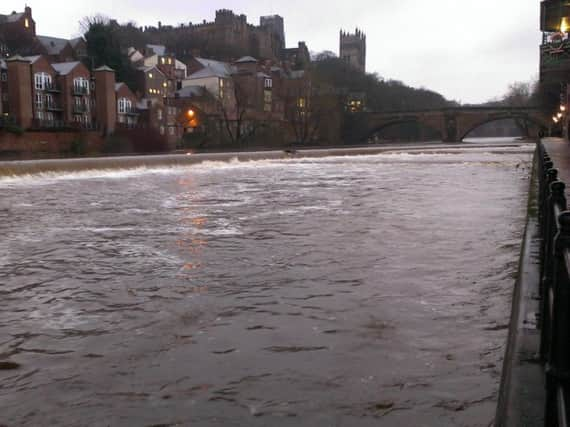Fishing ban on stretch of River Wear after poaching reaches '˜industrial scale'


The ban, in the heart of Durham, has been ordered to combat what conservationists have condemned as “salmon and sea trout poaching on an industrial scale”.
A bylaw backed by the Wear Anglers’ Association (WAA), which has 6,000 members, will ban all fishing.
Advertisement
Hide AdAdvertisement
Hide AdThe move has been support by the trustees of the City of Durham Freemen, who control riverbank access, and supported by Durham Constabulary, Durham County Council and the Environment Agency.
Thousands of fish come into the river from the Atlantic and North Sea every summer and autumn as they head for spawning grounds, but a series of weirs in the shadow of the cathedral present an obstacle to the migration.
During low water, fish held in pools below the weirs are vulnerable to attack, with many hundreds impaled on hooks by poachers using outlawed rod and line tactics, known as “stroke hauling,” “snatching” or “foul hooking”.
Some offenders have arrived in refrigerated vehicles to take their haul away, and one reported poacher is said to have taken 80 fish one visit.
Advertisement
Hide AdAdvertisement
Hide AdPolice and Environment Agency bailiffs have made arrests, but the trustees decided the only option was to end decades of tradition by withdrawing the free fishing privilege on the south bank.
The latest measures cover more than 500 metres, matching existing restrictions on the opposite side of the river, and extend into the western end of the Sands.
The trustees have set aside 350 metres of the south bank at the eastern end of the Sands to allow law-abiding anglers the chance to continue free fishing away from the poaching “hot spot.”
A spokesman for the WAA said: “The indiscriminate plunder of the river’s migratory fish at Freeman’s Reach must stop.
“The majority of our association’s members return most of the fish they catch.”
More details about the WAA can be found via its Facebook page.